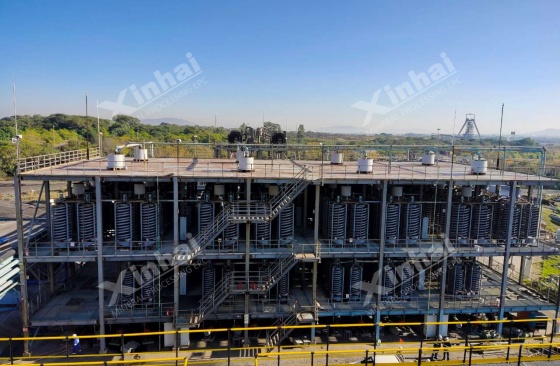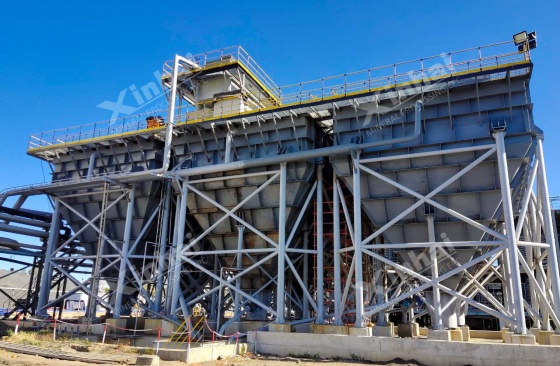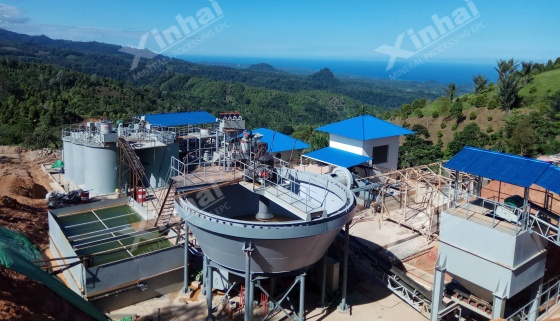
The function of a chrome washing plant is to process chrome ore into chrome concentrate, and then extract chrome metal through smelting. Chromium metal is widely used in the fields of metallurgy, electroplating, pigments and coatings, refractory materials, etc. 70% of the world's chrome ore resources are concentrated in South Africa. In addition, there are certain reserves in countries such as Kazakhstan and India. The existence of chrome washing plants is precisely to make better use of these resources.
This article introduces the process flow and equipment types of chrome washing plants, and conducts a cost analysis of chrome washing plants through a South African case.
Do you know how a chrome washing plant works? This requires us to first understand the properties and characteristics of chrome ore.
The color of chrome ore is black to brownish black, with a semi-metallic luster, a hardness of 5.5~6 (Mohs hardness), and a density of 4.5~5.1g/cm³. Due to the high density of chrome ore, most low-density impurities such as clay, serpentine, olivine, etc. can be removed by gravity separation.

The typical process flow is as follows:
1. Crushing: Use jaw crushers, cone crushers and other equipment to crush the raw ore to a particle size suitable for washing (<30mm).
2. Ore washing: Use drum washers, trough scrubbers and other equipment to remove fragile impurities such as clay and weathering layers.
3. Screening: Use vibrating screens, drum screens and other equipment to classify chromite and separate coarse chromite from fine mud.
4. Gravity separation: Use spiral chutes, shaking tables, jigs and other gravity separation equipment to remove low-density impurities and enrich chromite. This step is the core link in the entire process.
5. Dehydration: Use thickener, filters and other equipment to reduce the moisture in the concentrate, which is convenient for the concentrate to be transported or enter the next processing link.
When the chrome ore contains a lot of mud and is seriously muddy, a spiral chute washer should be used. The working principle is to use the different sedimentation speeds of solid particles in the liquid to quickly remove the low specific gravity and fine particle size ore mud.
2. Spiral chute
The spiral chute is based on the differences in specific gravity, particle size and form between chrome ore and gangue minerals, and produces a dynamic centrifugal flow film of slurry on the inclined surface of the spiral. In the combined force field of gravity and centrifugal force, the gravity, hydrodynamic pressure and friction of different particles are used to separate chrome ore and gangue.
Combining the lateral water flow and the asymmetric reciprocating motion of the bed surface, the mineral particles are layered and separated according to density and particle size. The bed surface is an inclined plane covered with riffles, forming fine grooves to promote mineral stratification. It has high separation accuracy and plays an irreplaceable role in the chrome ore re-selection process.

4. Jig
The pulsating water flow is used to repeatedly loosen and settle the ore particles on the screen plate, and the ore particles are separated by density: the chromite ore sinks to become concentrate, and the low-density minerals float up and are discharged with the water flow. The sorting is optimized by adjusting the water stroke, frequency and bed thickness. It is suitable for coarse and medium-grained ores (0.5~30mm). The processing capacity is large, but the sorting accuracy is lower than that of the shaking table.
5. Thickener
The thickener is used for dehydrating chrome concentrate. It uses the sedimentation principle to separate the chrome concentrate from water and reduce the water content of the chrome concentrate.
1. South Africa 300tpd chrome washing plant case
The ore grade of this project is 8.53%, and the processing capacity is 300tpd. The process flow designed by Xinhai is: two-stage one-closed circuit crushing and screening-one-stage closed circuit grinding and classification-gravity separation-concentrated tailings dewatering process flow.(South Africa 3000t/d Chromite Flotation Processing Plant)
In the gravity separation stage, the hydraulic classifier is first used for gravity separation. The selected tailings are used as the final tailings. The middlings are scavenged, and the concentrate flows into the shaking table for selection to obtain the final concentrate. The tailings in the shaking table are returned to the ball mill for re-grinding.

2. Cost Analysis
The investment cost of a chrome washing plant can be divided into the following aspects:
(1) Site and infrastructure costs: The site should be located near the chrome deposit. Infrastructure is the preliminary work for building a chrome washing plant.
(2) Permits and licenses: Comply with local regulations and apply for mining permits and licenses. The local government may require the company to take pollution control measures.
(3) Equipment investment: including investment in crushing equipment, re-selection equipment, dehydration equipment and some auxiliary equipment, as well as equipment installation costs.
(4) Infrastructure and public facilities: including electricity costs (chrome washing plants require a lot of electricity), water supply costs, and office area construction costs.
(5) Operating costs: After the chrome washing plant is put into operation, we usually have to pay more operating costs, including hiring workers, equipment maintenance, raw material costs, etc.
Return on investment of chrome washing plant: Under the conditions of Cr₂O₃>30%, large-scale production (200+ t/d), and low-cost regions (such as South Africa and India), the ROI of chrome washing plants can reach 20%~35%, which is very attractive. It is recommended to conduct ore selectivity tests and market research in the early stage for accurate calculation.
The above introduces the process flow, main equipment, investment cost and return on investment of the chrome washing plant. As a Chinese company, Xinhai Mining has undertaken many mineral processing businesses in more than 100 countries and regions around the world. We can provide customers with EPC+M+O services, using scientific mineral processing processes and high-quality equipment to create more profits for customers.
To find out more about our products and solutions, please fill out the form below and one of our experts will get back to you shortly.